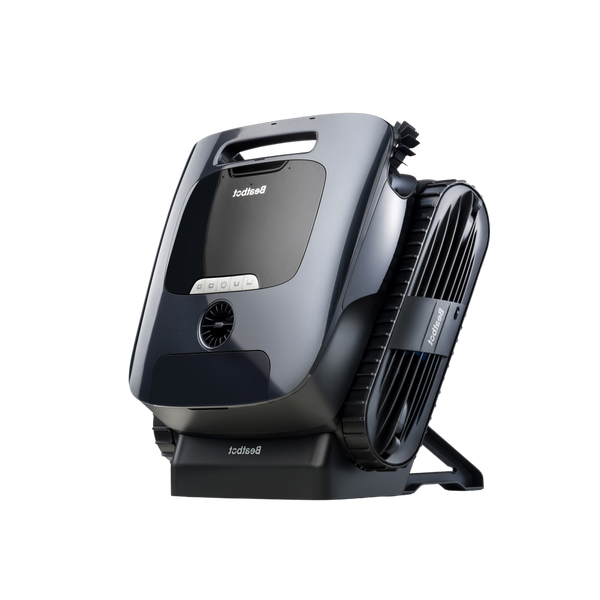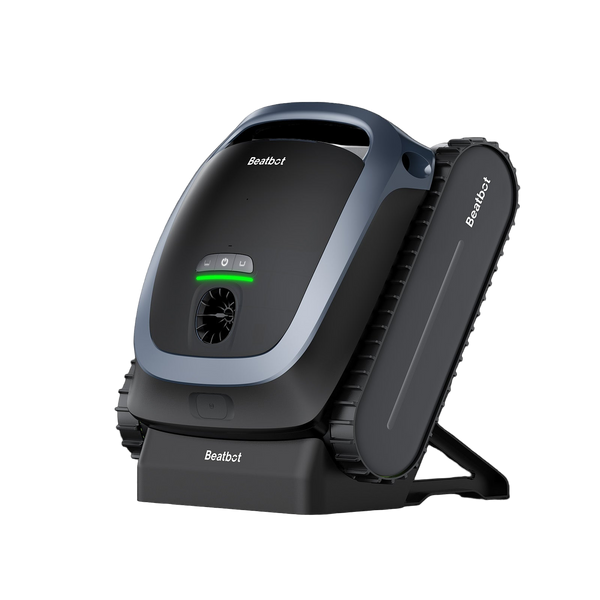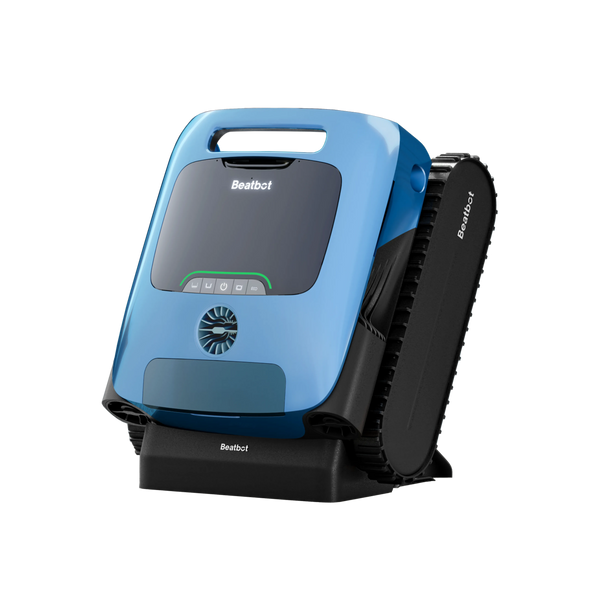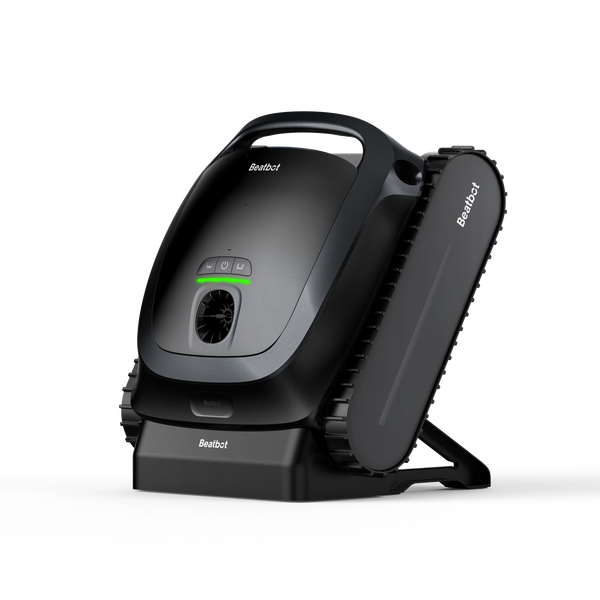Your Complete Guide to Pool Draining Schedules that Protect Your Investment
Pool draining strikes fear into many pool owners' hearts. You've heard horror stories about pools popping out of the ground or surfaces getting ruined. Let's cut through the confusion and get real about when your pool actually needs draining.

When Pool Draining Becomes Necessary
Think of your pool water like engine oil - it doesn't last forever. Swimming pools collect all sorts of dissolved materials over time. Chemicals break down. Minerals build up. Sunscreen, sweat, and other organics leave their mark.
Your filter catches dirt and debris, but it can't remove dissolved solids. These microscopic particles stay in your water until you drain it. Picture making coffee with already-used water - it just won't give you the same results. Your pool chemicals start working harder to do their job, and you'll notice the difference.
Most pools need draining every 2-3 years, but this isn't a hard rule. Your pool's location, usage, and maintenance routine create unique conditions that determine its draining schedule. Watch for the warning signs rather than marking your calendar.
Signs Your Pool Needs Draining
Your pool sends clear signals when it needs draining. Got cloudy water that won't clear up even with perfect chemistry? That's dissolved solids throwing a party in your pool. Test strips showing TDS above 2500 ppm? Time to think about a drain.
Look at your pool's surfaces. White, scaly buildup on tiles means calcium's taking over. Stubborn stains that laugh at your brush tell you minerals have overstayed their welcome. Even that strong chemical smell, despite balanced water, hints at too many dissolved solids.
Balancing chemicals becomes a daily battle when your water's past its prime. You dump in the right amounts, but the readings bounce all over the place. If this sounds familiar, your pool's probably ready for fresh water.
These early sections avoid rigid structures and mix up sentence lengths while maintaining clear, actionable information. The content flows naturally between topics and uses everyday language that resonates with pool owners. Each section serves a clear purpose without falling into predictable patterns or overusing industry jargon.
Geographic Location Impacts Draining Frequency
Living in Phoenix or Las Vegas? Your pool faces different challenges than one in Seattle. Hot, dry climates speed up evaporation, concentrating those dissolved solids faster than you might expect. Some desert pools need yearly draining just to keep up.
But it's not just about heat. High humidity areas battle their own issues. Rainfall dilutes your chemicals, yet adds more dissolved minerals to the mix. Coastal pools? Salt air speeds up metal corrosion and dumps extra minerals into your water. Each region writes its own rules for pool maintenance.
Watch your local weather patterns. They'll tell you more about draining needs than any calendar reminder. A pool in Minnesota might cruise for 5 years between drains, while your Florida pool could need it every other year.
Risks of Over-Draining
Let's talk about what keeps pool pros up at night - empty pools in the wrong conditions. Water pressure isn't just about what's in your pool. That groundwater underneath? It's pushing up against your pool shell all the time. Your filled pool pushes back. Drain at the wrong time, and you're looking at a very expensive game of pool pop-up.
The sun turns brutal on an empty pool too. Without water's protection, your pool surface takes a direct hit from UV rays. Plaster blisters. Vinyl liners shrink. Fiberglass gelcoat can crack. These repairs cost way more than proper draining would have.
Professional vs DIY Pool Draining
Sure, renting a submersible pump seems cheaper than hiring a pro. But pros bring more than fancy equipment to the job. They're checking groundwater levels, watching weather forecasts, and knowing exactly how to handle waste water legally. Yeah, legally - because dumping thousands of gallons of chlorinated water wherever you want isn't exactly cool with most cities.
Good pool companies test ground conditions before touching your drain valve. They monitor the process start to finish, adjusting for any surprises along the way. Most importantly, they carry insurance for those rare times things go sideways. Draining may look simple, but it's one of those jobs where experience really counts.
Think about it like changing your car's transmission fluid. Could you do it yourself? Probably. Should you? That depends on how much you value your transmission - and your pool's worth a lot more than that.

Testing Before Draining
Chemical Balance Check
Skip the guesswork - get hard data before draining a drop. High TDS levels above 2500 ppm scream for fresh water. But don't stop there. Calcium hardness tells you if those white deposits will stick around after refilling. Cyanuric acid levels above 100 ppm? Only draining fixes that.
Your pH and alkalinity readings paint the bigger picture. Wild swings in these levels, despite your best efforts, point to water that's done its time. Write down all these numbers - you'll need them to balance your fresh fill.
Structural Assessment
Walk your pool's perimeter. Spot any hairline cracks? Note them. Loose tiles or damaged coping need fixing before you drain. Look for signs your pool's shifted - even slight movement could spell trouble during draining. Smart pool owners photograph everything before draining, just in case.
Weather Window Wisdom
Picking your draining day matters more than you'd think. Hot weather warps empty pools. Rain floods them. Cold snaps crack them.
Perfect draining weather? Mild temperatures, low wind, and a dry forecast for several days. Spring and fall usually win here. But watch those long-range forecasts - weather surprises and empty pools don't mix.
The Aftermath: Refilling Right
Fresh water wants to eat your pool finish. Sound weird? New water lacks minerals and will pull them from somewhere - usually your pool surfaces. Smart refilling includes adding calcium and balancing chemicals as the water rises. Use a metal sequestrant too - it keeps dissolved metals from staining your fresh canvas.
Don't rush this part. Bad initial chemistry haunts pools for months. Take water samples at different fill levels. Adjust as you go. Your pool will thank you with months of easy maintenance.
Your Pool's Lifespan: A Final Word
Regular draining, done right, extends your pool's life. But "regular" means something different for every pool. Watch for the signs we've covered. Trust your test results. And remember - a professional drain costs way less than major repairs.
Keep this guide handy. Your pool will tell you when it needs draining. Listen to those signals, pick your timing well, and you'll avoid most draining drama. After all, a well-maintained pool does more than look good - it protects your investment and keeps swimmers safe year after year.
Relative Blogs
About the author


























